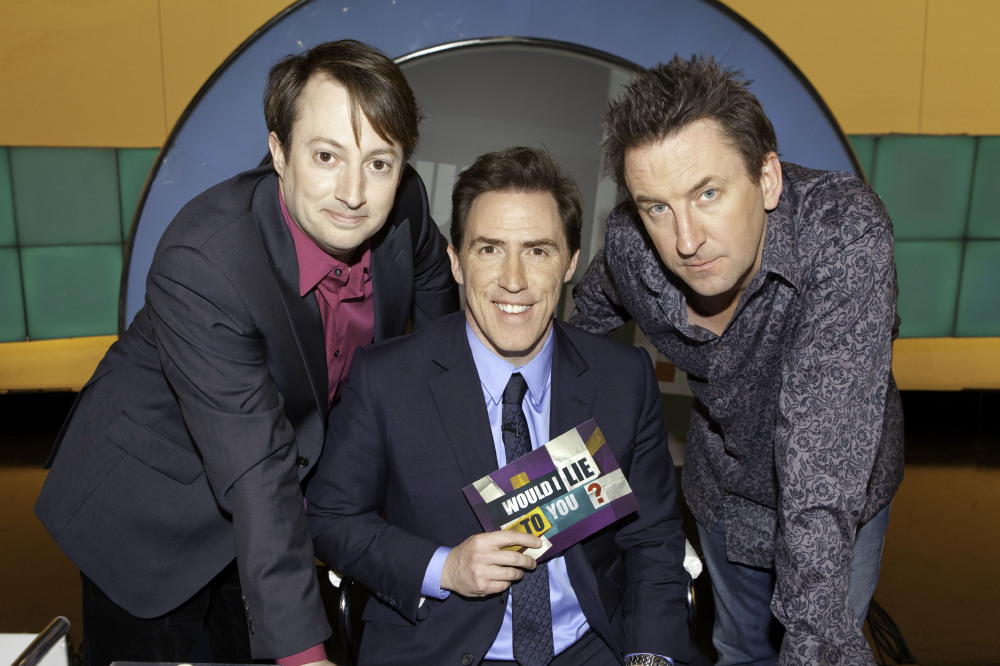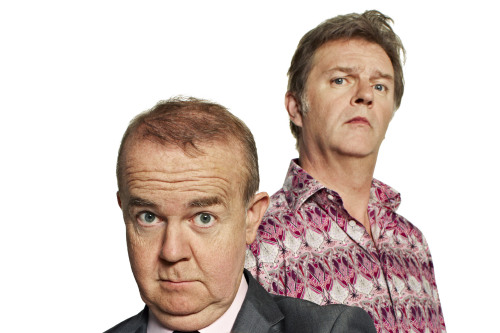
Would I Lie To You
Would I Lie To You returns to BBC One tonight and incredibly sees the fraud based panel show start its seventh series on BBC One. Along with the launch of Sweat The Small Stuff, it sees another comedy panel show join the TV listings this week, it’s made us wonder why the panel show has become the single most prevalent comedy show on British TV?
A decade ago, there were only three in the UK. Have I Got News For You might have gotten all the plaudits, but They Think It’s All Over and Never Mind The Buzzcocks were both there to pick the humour out of the worlds of sport and music respectively.
Now there are more than a dozen on UK TV, each trying to offer their own little niche of comedy and each trying to come out triumphant. With QI, its niche is intellectual gags. With Have I Got News For You, it’s political satire. With Celebrity Juice it’s simply being very, very weird.
Apart from that though, the formats are all incredibly similar. All have a comedic host and two teams of three. All have a duo of regular team captains and four weekly guests, usually stand-up comedians or TV presenters who don’t mind making a fool out of themselves. All have an audience that all of the panellists hope to win over and add some atmosphere to the proceedings.
In a space where originality is traditionally king, the comedy panel show has very little of it. That same criticism can even be levelled at the booking agents for the shows, as so often we see the same faces on these shows trying to make a name for themselves.
Take Mock The Week and QI for example. Both of these shows had only been running for a series or two before the guests started repeating themselves. Now it’s hard to find an episode of QI that doesn’t feature David Mitchell, Bill Bailey, Sean Lock or Jo Brand.
 Ian Hislop and Paul Merton of Have I Got News For You
Ian Hislop and Paul Merton of Have I Got News For You
While a lot of these shows don’t really have a competitive edge (after 45 series, no one has any idea how Have I Got News For You doles out points), the panellists themselves make it a competition to out joke one another to a level where it actually gets uncomfortable to watch.
These shows are incredibly cheap to make and are exceptionally easy to market and sell. The ability to throw some reasonably liked faces behind a desk and just let them rip on the week’s news is just too easy a proposition for a TV executive to ignore.
Even when one of the names on the show gets too big and starts demanding high wages it’s easy for the executives to work around, as there will always be at least five exciting stand-up comedians who will beat their own mother to death for a team captain role. After it’s seen Russell Howard be propelled into the comedy stratosphere, who can argue with their logic?
These shows also run for so long, that when the suits finally decide to pull the plug on the show, they can grab headlines again. Like the hydra of Greek legend though, when one ends, two more come into its place. The sports comedy panel show hole has been filled by A League Of Their Own and the radio show Fighting Talk since They Think It All Over died back in 2006.
With Mock The Week still one of the highest rating shows on BBC Two, there will still be more pretenders to the throne than you can shake a stick at all thinking that their tiny little variation on the theme will be the one to see them come out as the winner of this contest no-one really knows how to win.
Tagged in TV

